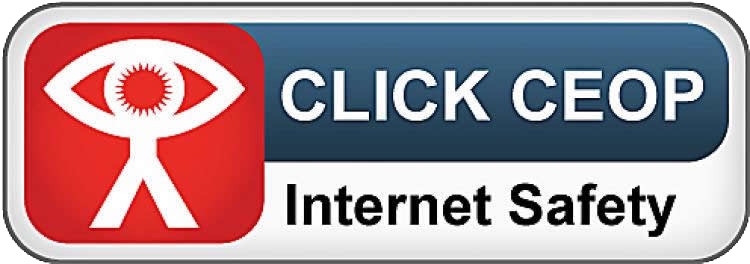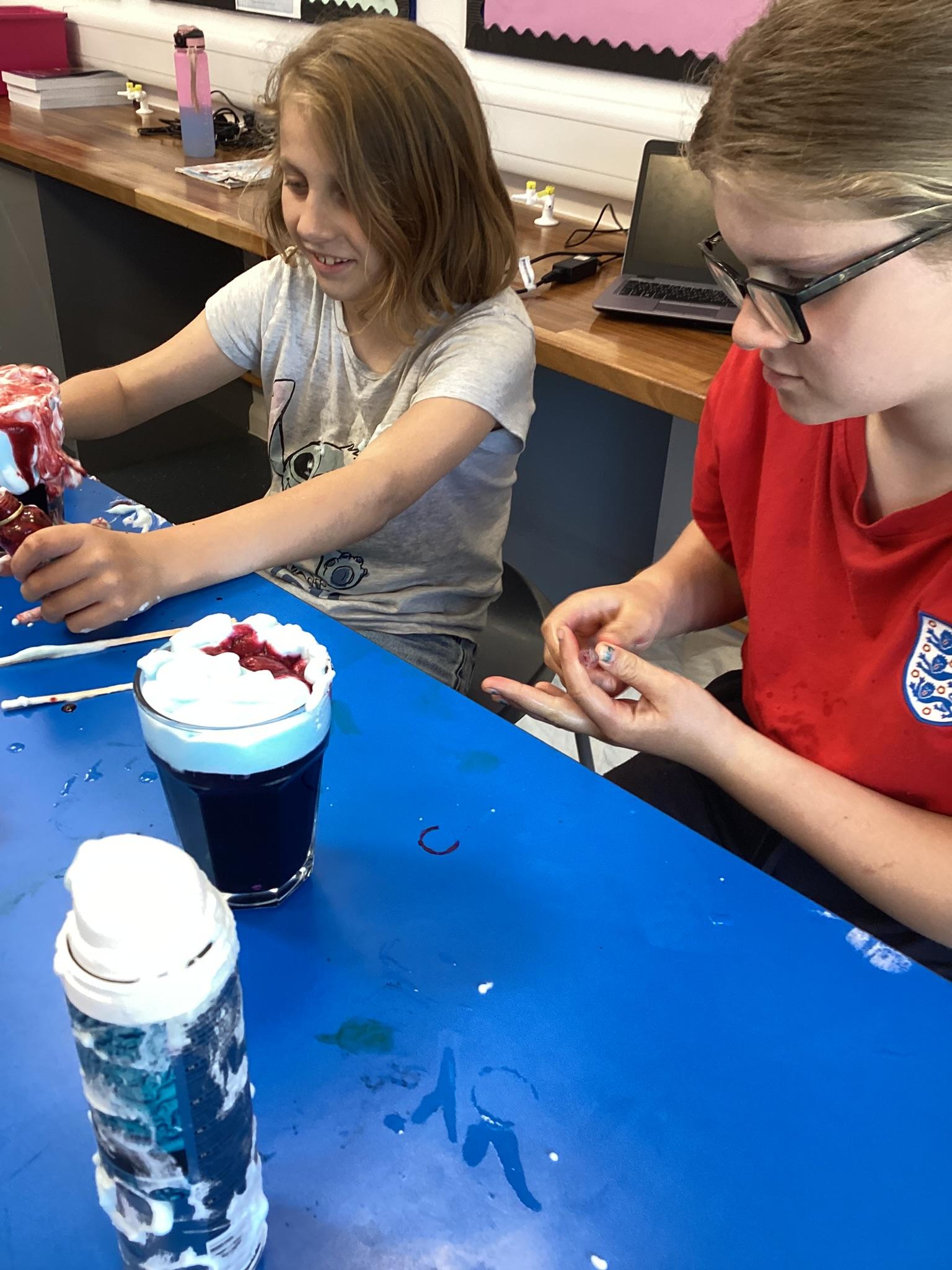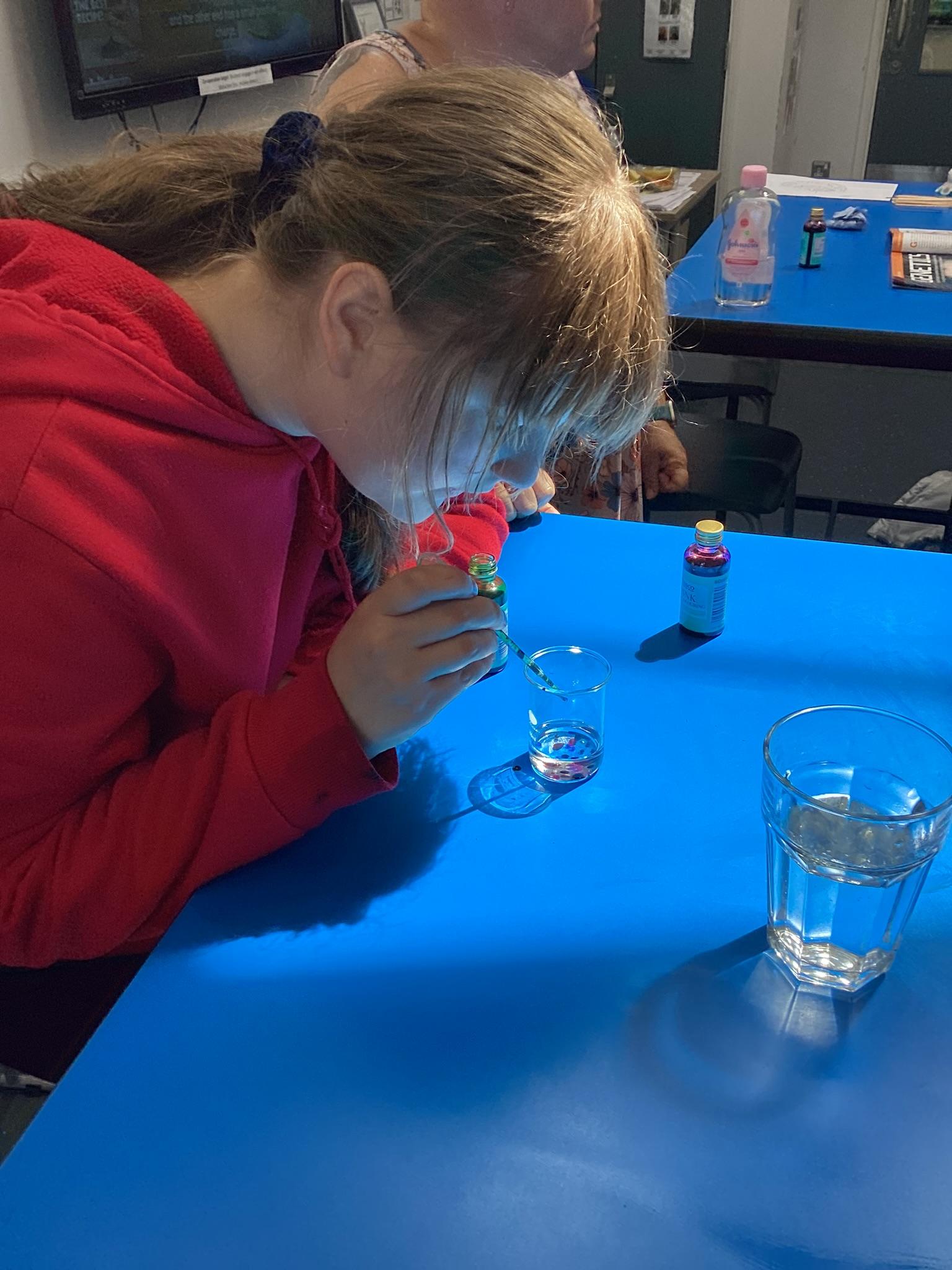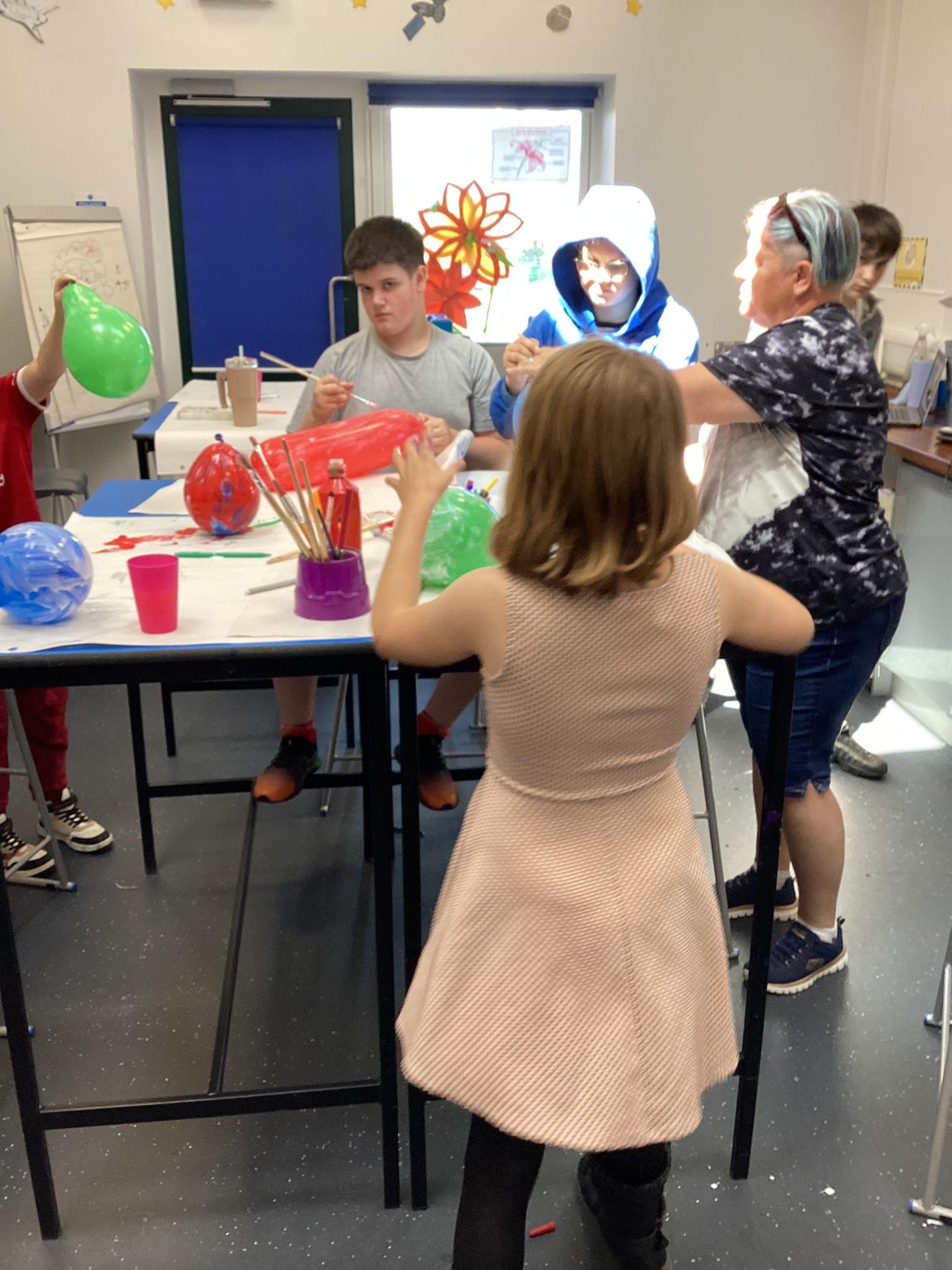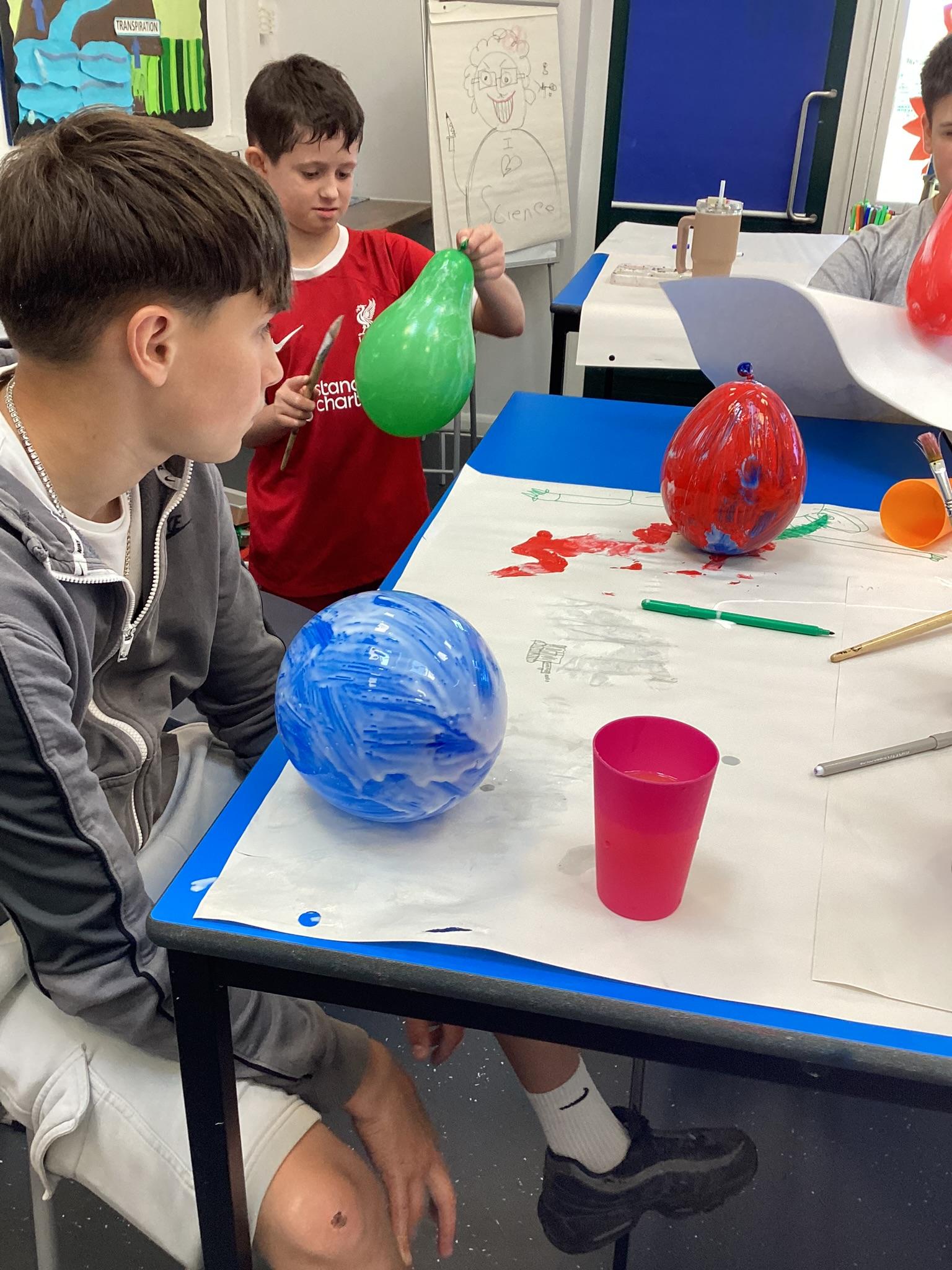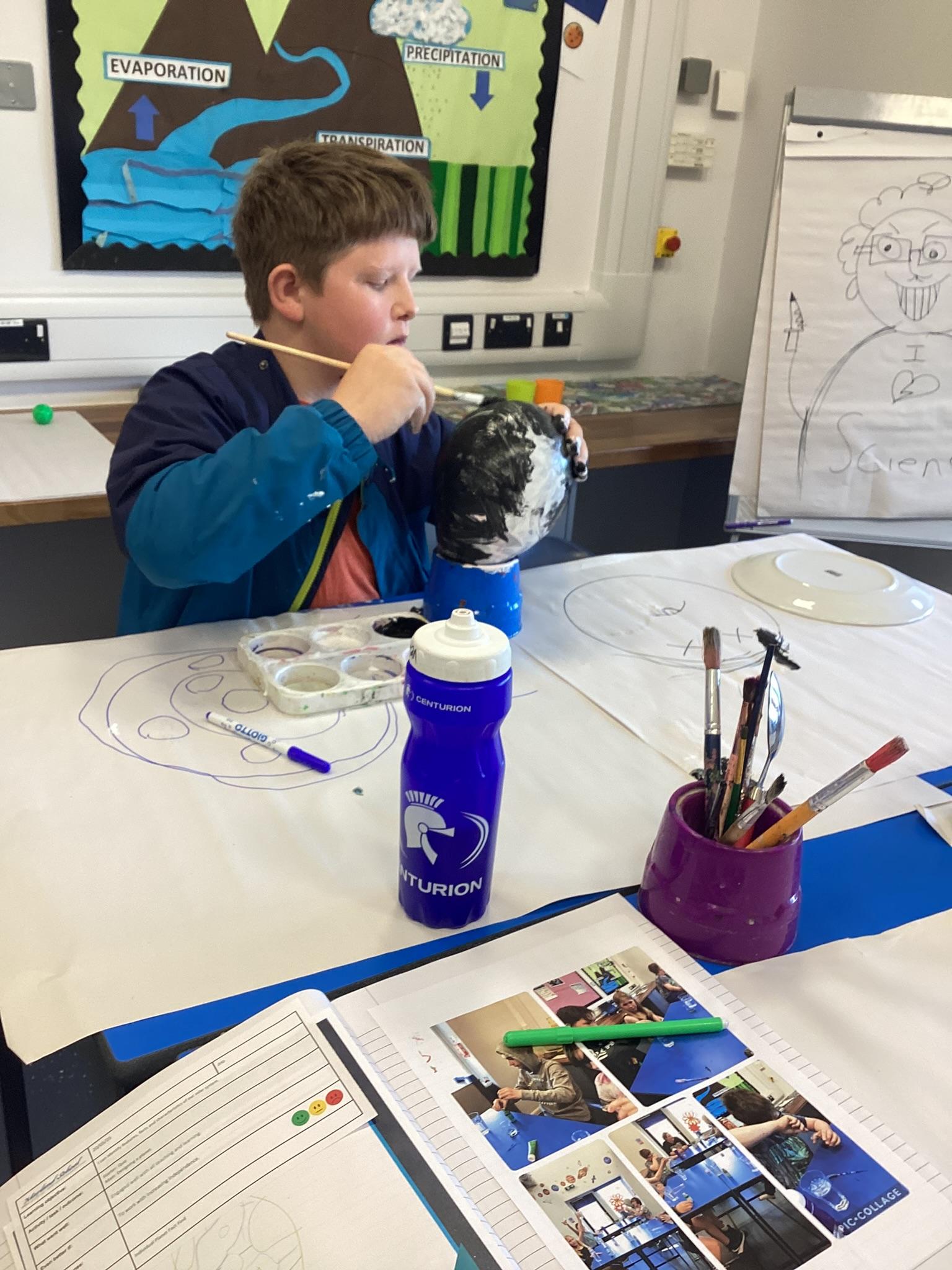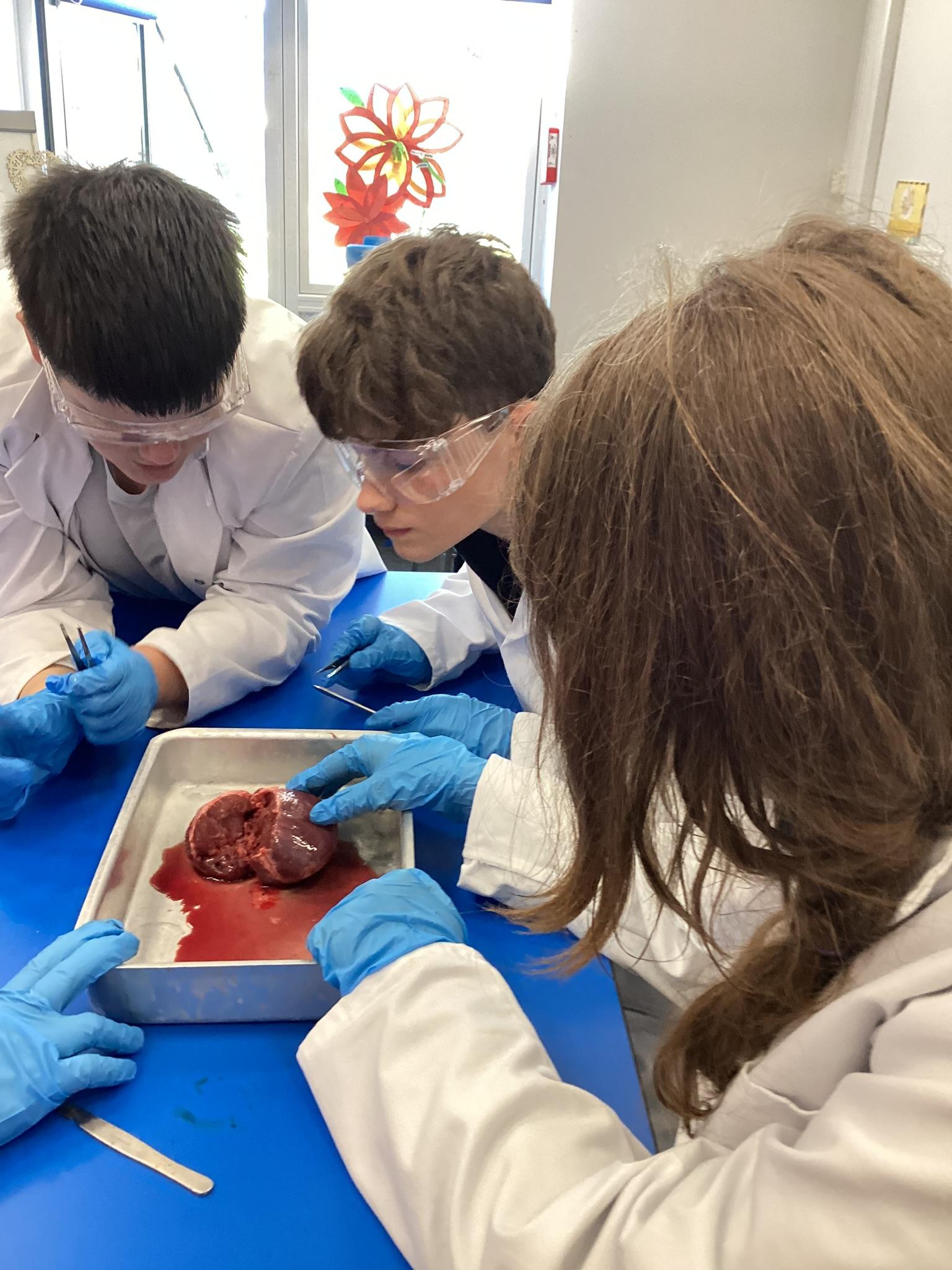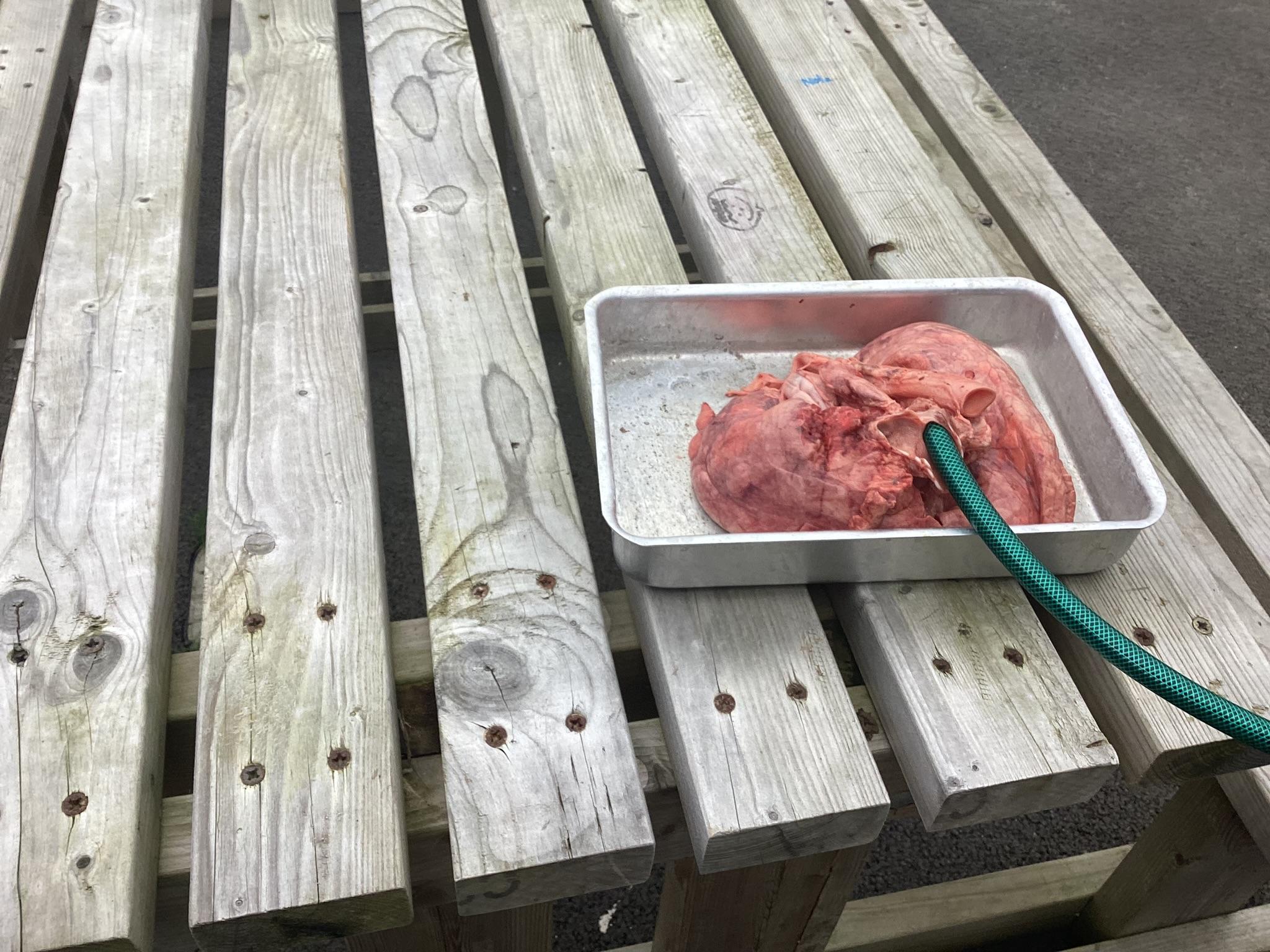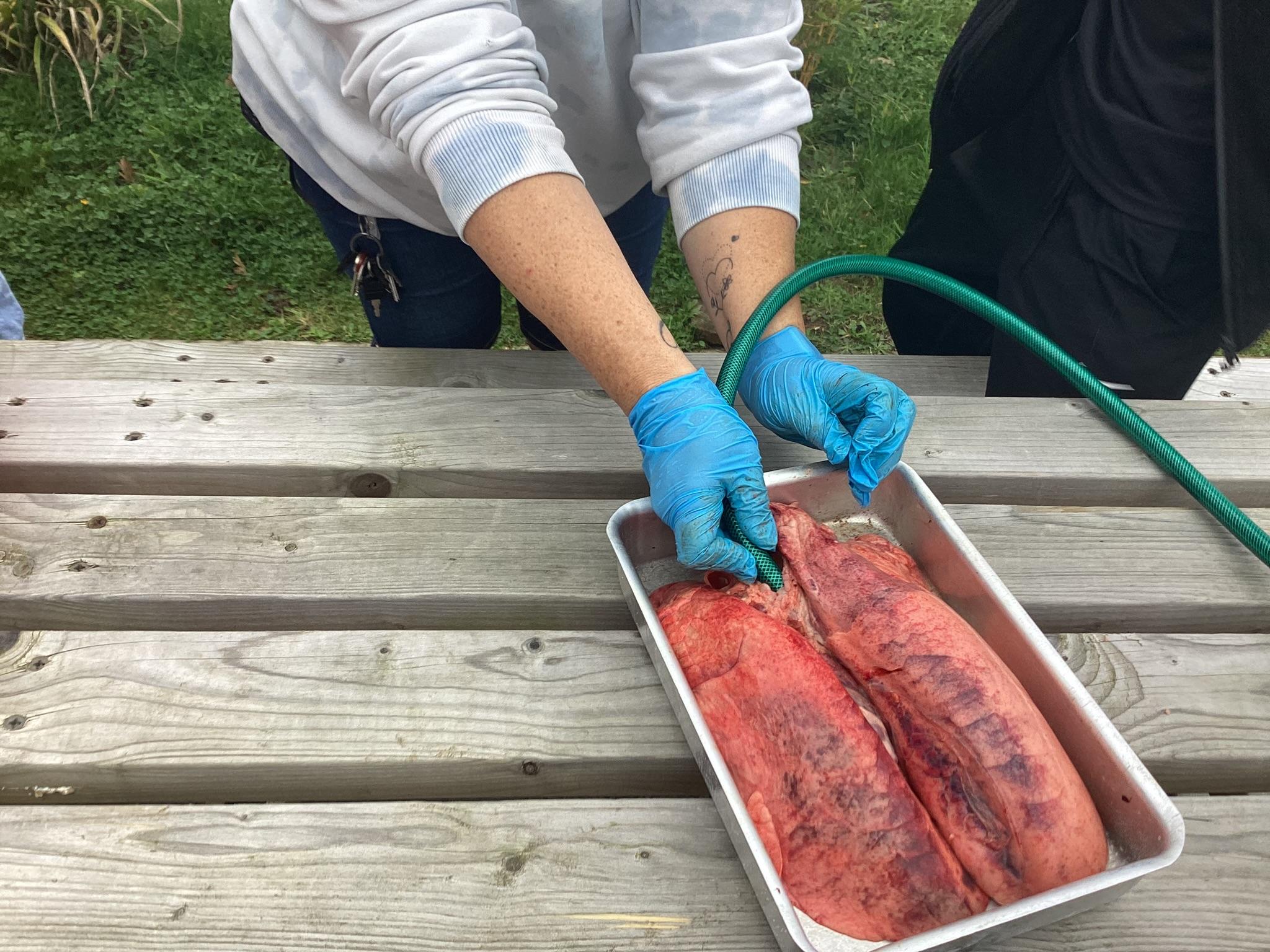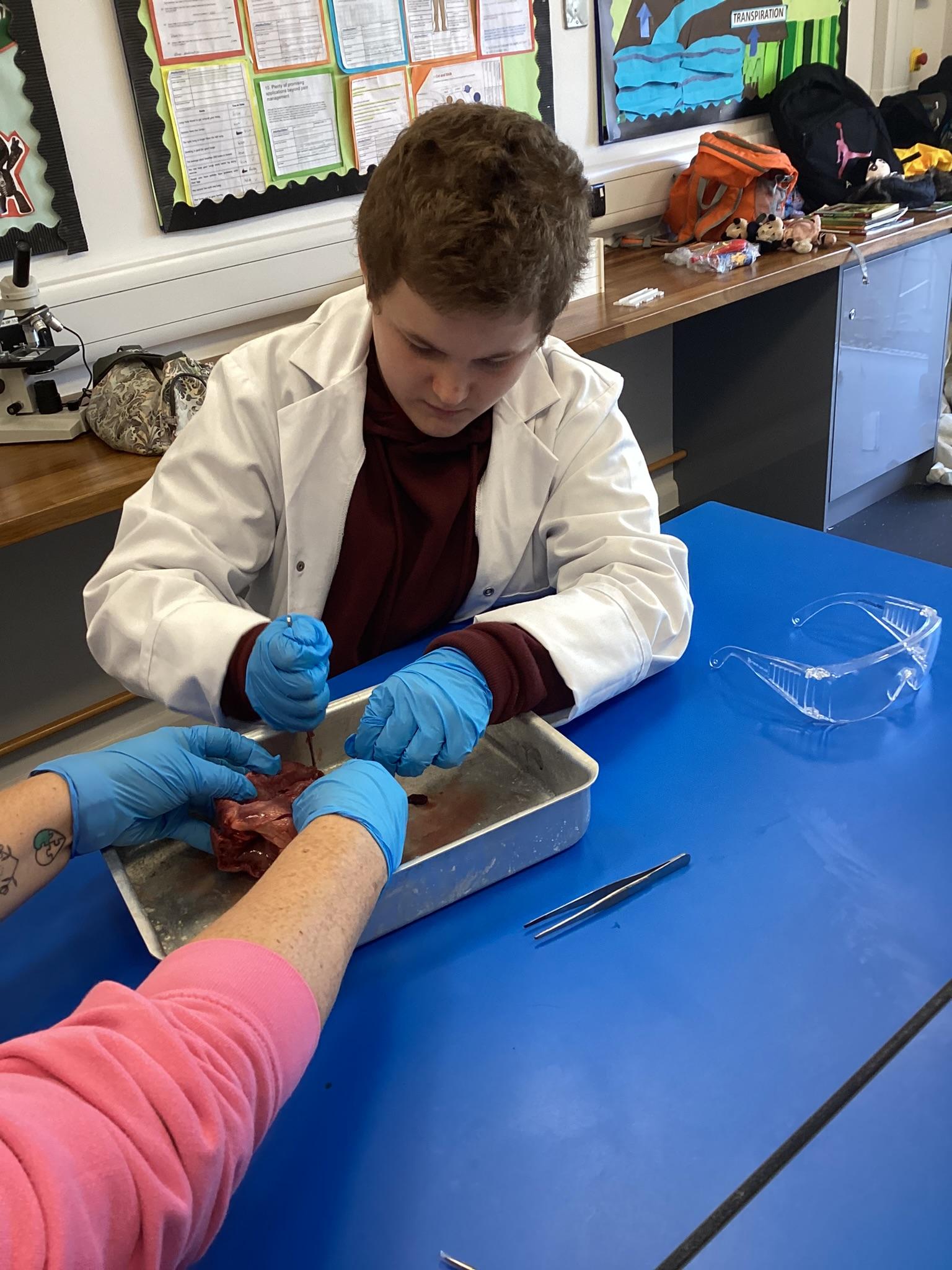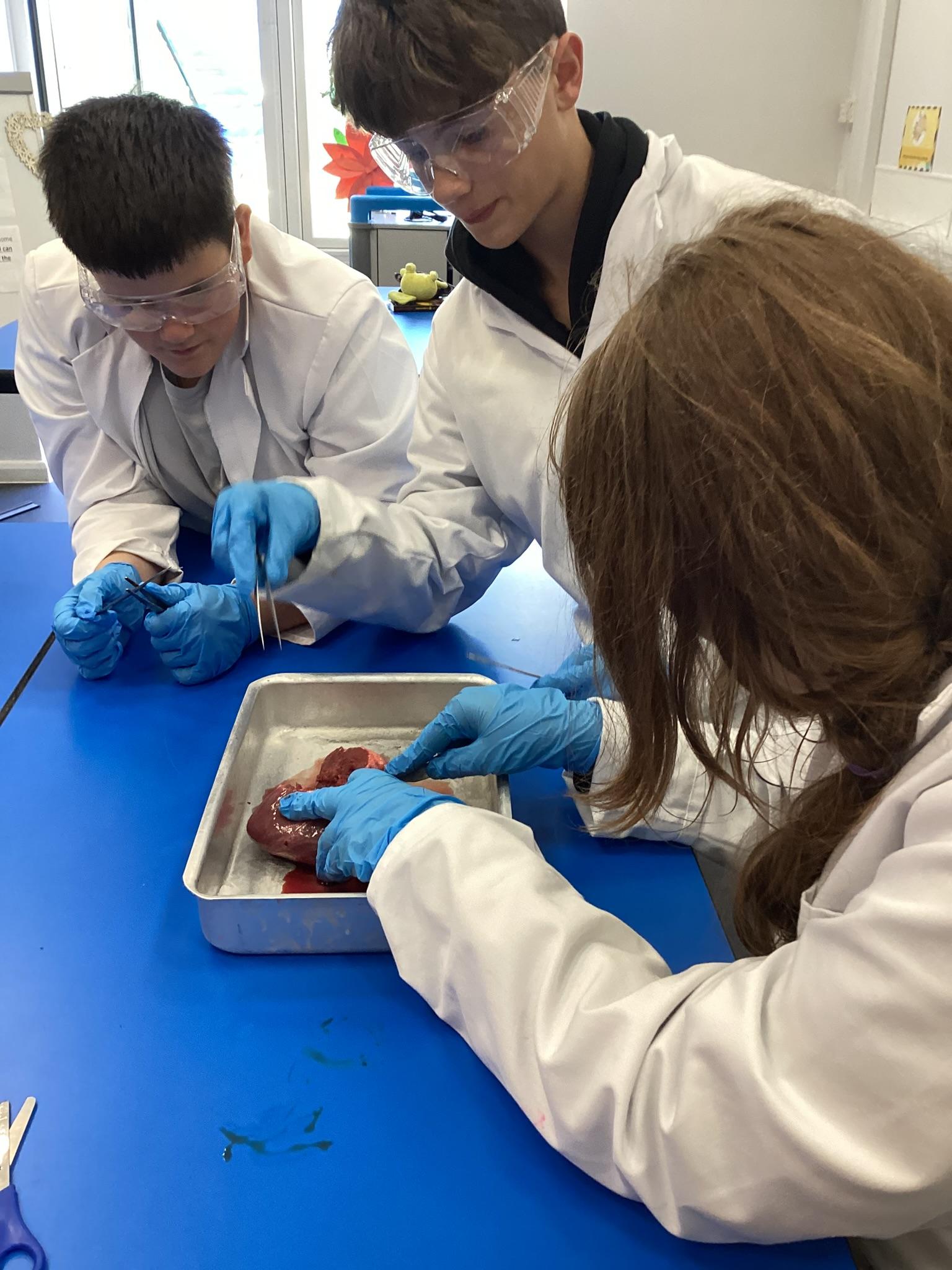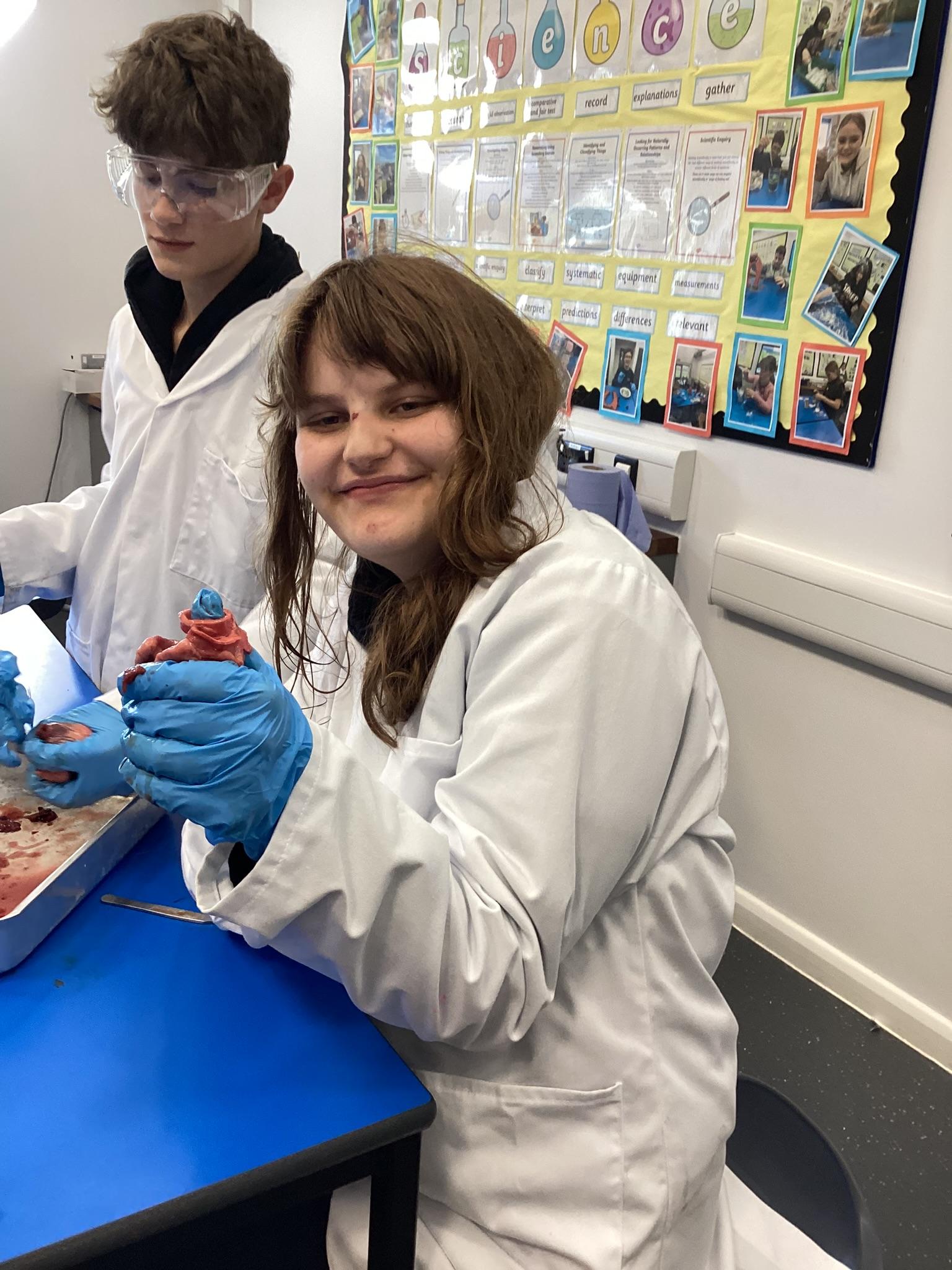Science
This Term
In Key Stage Three we are studying The Human Skeleton and Muscles. This will involve looking in detail at:
- The human skeleton: Function and composition
- Muscles
- Movement
- Biomechanics
In Key Stage Four we are studying Health and Disease. This will involve looking in detail at:
- Cardiovascular disease
- Risk factors for non-communicable disease
- Cancer
- Bacterial and viral diseases
- Sexually transmitted disease
- Climate change and human health.
We will have the opportunity to examine and dissect a diseased heart.
Intent
We believe that our students deserve a broad and ambitious Science curriculum, rich in practical skills and knowledge, which ignites curiosity and prepares them for future learning or employment. We aim to inspire learners to become confident, resilient scientists who develop a love of learning science by offering a stimulating environment that integrates discovery and exploration into learning. We aim to create successful learners who are able to apply scientific knowledge and understanding correctly to both familiar and unfamiliar contexts in the world. We aim to enable learners to understand how science fits into society and thereby encourage them to make a positive contribution to their local and wider community. We aim to prepare young people to critically analyse qualitative and quantitative data to draw their own logical, well-evidenced conclusions. Ultimately, we aim to empower learners to critically evaluate and refine methodologies, and judge the validity of scientific conclusions that are presented to them in the media.
Implementation
Science is taught in a fully equipped specialist science laboratory to enable pupils to take part in a range of interesting and exciting practical activities. This helps to motive pupils to learn and understand the world around them. It allows students to ask their own questions of science through planning and carrying out experiments to find answers. Science also provides pupils with scientific knowledge and understanding that they can apply to everyday life situations.
Students follow the national curriculum, the wide range of resources and learning opportunities mean that lessons are planned and work is adapted and personalised to meet the needs of all pupils.
We respect that each young person will arrive at Marland with their own unique strengths and challenges. Our aim is to deliver the curriculum in a way that meets their individual needs.
Our pedagogy is underpinned by a rigorous and systematic approach to the teaching of practical science following the principles below:
-
The use of live modelling and working scientifically to demonstrate processes, standards and expectations.
-
Using a range of methods to deepen knowledge so that it is committed to long-term memory.
-
A need to ‘normalise mistakes’ so that teachers can pre-empt mistakes as part of their planning to address gaps swiftly. This will help students to see that making mistakes as a learning opportunity.
-
The importance of giving students regular opportunities to challenge concepts and ideas and providing opportunities to discuss and articulate views of science in real-life contexts.
What are the key concepts in science and why do we teach them?
Our learners study science so they can better understand the physical, material and biological world that is changing around them. Understanding Science is knowing:
-
How do all living things work, including our own bodies and how all living things on earth are interdependent?
-
How materials around us are sourced and used. How humans have changed the world for better using science and the problems that face humanity and how science can be used to prevent them.
-
How the physical world works, from tiny atoms to the expanse of space and the universe.
-
How to take measurements, investigate, plan and take part in experiments to learn about the world around us.
Enrichment and cross-curricular links:
The science curriculum has strong links to other curriculum areas:
-
English – using keywords and subject specific vocabulary to explain scientific concepts and express opinion.
-
Mathematics – the use of maths to explain and predict outcomes and results for experiments related to the natural world.
-
Technology – through measuring materials and their properties and how these properties arise or change.
-
Geography – through the shared study of earth sciences.
-
History – through understanding and developing knowledge of scientific discovery or theory and how this has changed over time.
-
Art - using materials to model chemical theory and life systems.
-
PE - through measuring the impact of exercise on pulse rate and oxygen saturation levels.
-
Everything we do is supported by the Thrive Approach by
Impact
All courses are underpinned by the concept of ‘How Science Works’ in the real world, encouraging students to discuss future solutions to scientific challenges that face us today. Our science curriculum leads to a range of qualifications.

